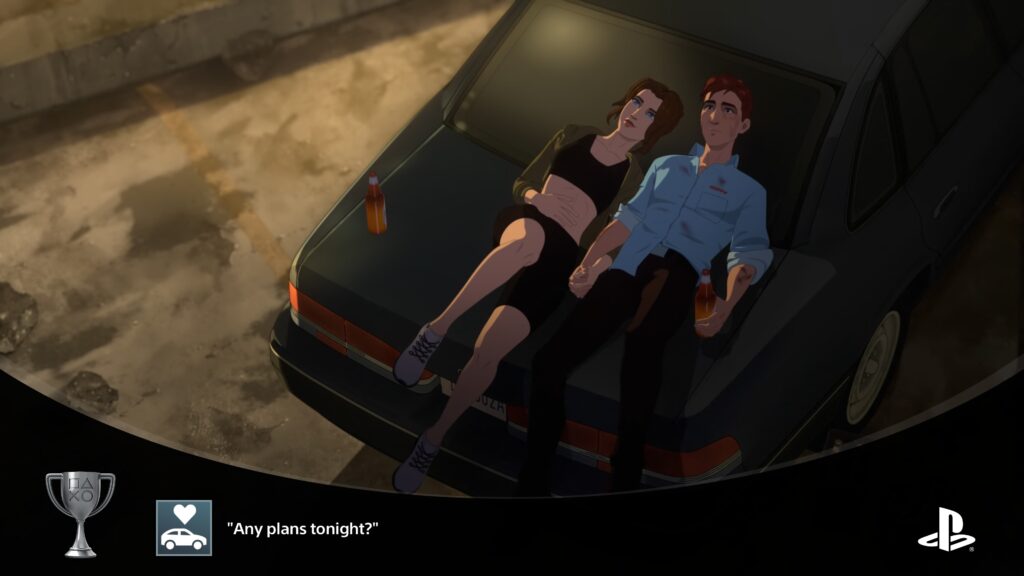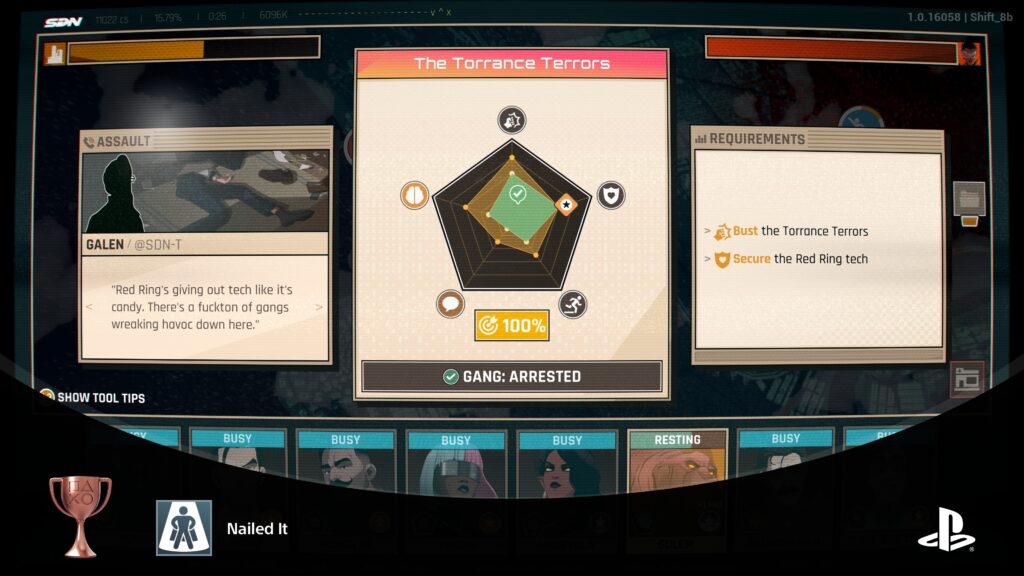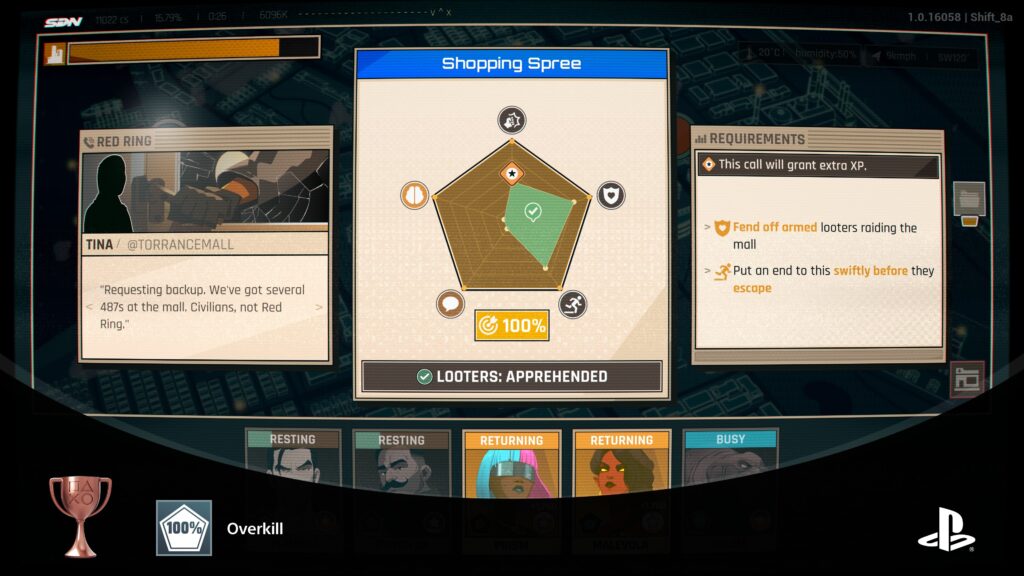I make no secret of my fondness for Telltale-style video games. That is, I like episodic story-telling narrative games with branching outcomes depending on the choices you make.
Dispatch is a game from AdHoc Studio. It was developed, at least in part, by people who formerly worked at Telltale. It has the features I like about this style of game: branching storytelling and an engaging story.
Unfortunately, AdHoc added a feature I despise: There are major portions of the game where the player needs fast reflexes. I got through the game, even working past a bug that caused the game to hang. However, “I didn’t rage-quit” isn’t exactly a plus.
Let’s start with what I liked:
The game’s animation style is definitely a step above its Telltale ancestors. The presentation is that of fixed set pieces; you can’t walk around a room and choose with whom or what to interact. That means that all scenes are pre-rendered, giving a more comic-book/anime feel to them.

The game’s story is basically “superheros in a workplace”, an idea that’s become more popular in recent years.
Your main character is Robert Robertson, a former superhero who finds himself working as a dispatcher in a superhero-for-hire company. He manages the Z-Team, a group of former supervillains who are trying to become “good”, with varying degrees of success.
So far, so good.
The problem I had with the game is at its core: dispatching. It requires a fast response to visual clues. You’re also often asked to make decisions on too little information.


In addition to the dispatch missions, there’s a separate “hacker” game. I liked it when they just involved puzzle-solving. But some have you dodging “computer viruses”. Again, I don’t really have the reflexes for this sort of thing.
For unskilled gamers like me, Dispatch tosses you a couple of bones: You can choose to have the game auto-play the combat scenes, so you don’t have to quickly press the correct button in order to have your hero land a punch. You can also turn off the limit on the number of attempts in the hacking mini-game.
The latter led to the one bug I found in the game: If you set the hacker game to unlimited attempts, in a non-optional hacking sequence near the end of episode six the game will hang. I got past it by turning on the hacking limit, which of course caused me to fail… but that turned out to be part of the story.
It’s unclear how crucial your rate of failure at the dispatch and hacking sequences has to do with the story aspects of the game. I got the impression that there were story options that were only available if you succeeded at certain missions, or sent out some heroes more frequently than others.
For me, the issue is “triumph” versus “tired”: How do I feel at the end of the game?
For the Batman, Guardian of the Galaxy, Expanse, and other Telltale-style games, I felt “triumph”.
For Dispatch, I felt “tired”. My lack of success at the fast-reflex part of the game, and possibility that the failures prevented me from exploring alternative game endings, drained the pleasure out of completing it.
If you’ve got the twitch reflexes for it, you’ll probably enjoy Dispatch more than I did.